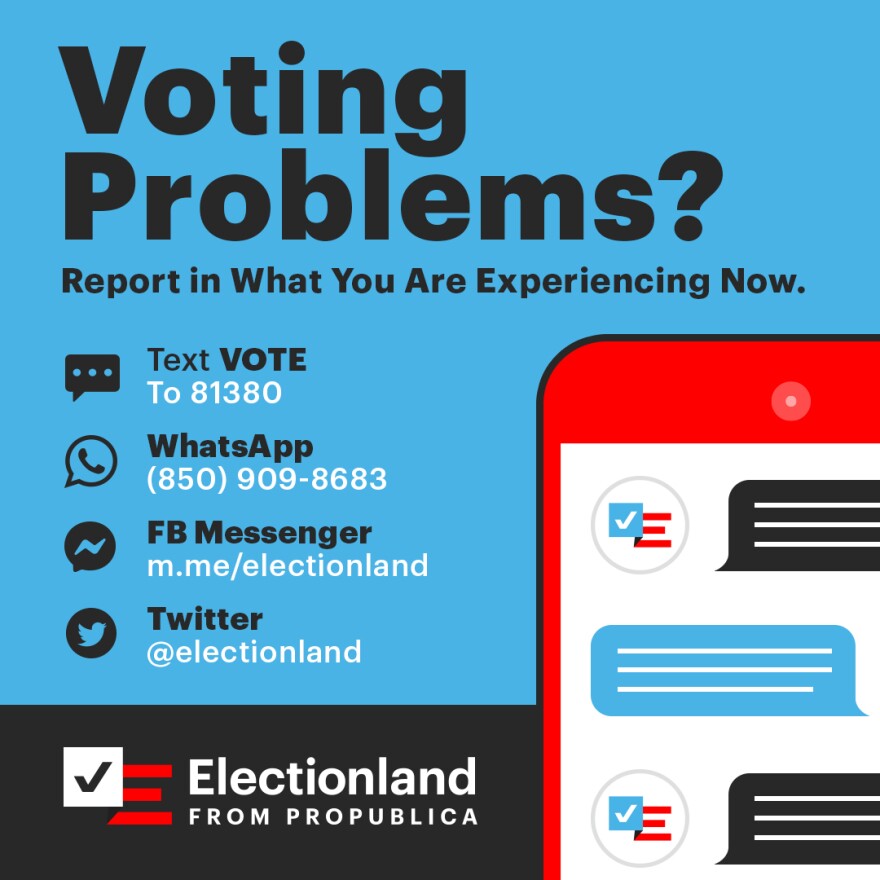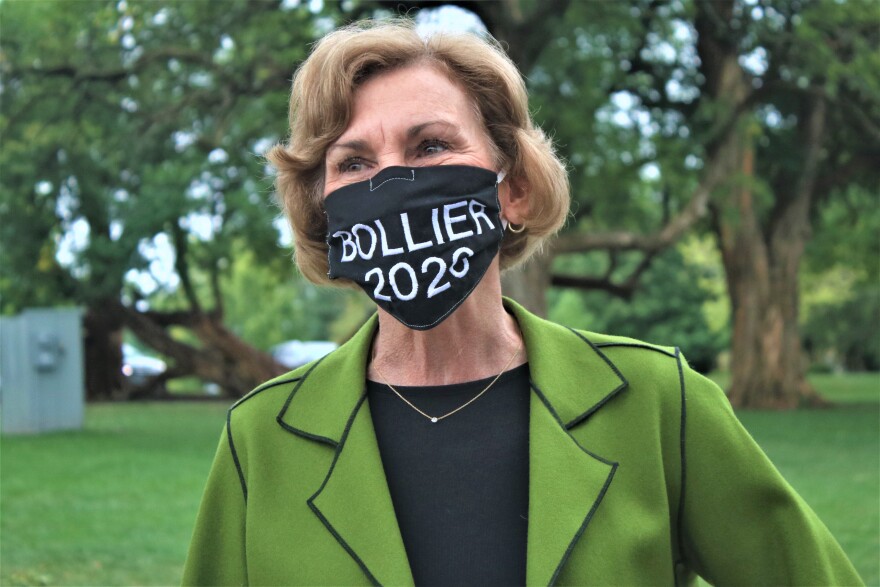TOPEKA, Kansas — The two doctors running for the U.S. Senate in Kansas are offering very different prescriptions for increasing access to affordable health care during the coronavirus pandemic.
Both Republican Roger Marshall and Democrat Barbara Bollier want to make big changes to the nation’s health care system but aren’t on the same page about whether the U.S. should expand government programs that already cover roughly 35% of Americans or rely more on competition in the private sector.
The outcome of the debate, which is playing out in congressional races across the country, will affect millions of Americans — and hundreds of thousands of Kansans — especially those with pre-existing health conditions.
We’ve broken down the candidates’ positions on the behemoth that is “health care” and how to deal with the COVID-19 pandemic into four sections.
The Affordable Care Act
Marshall, a two-term congressman from western Kansas, is leading the GOP’s persistent effort to repeal the Affordable Care Act, which President Barack Obama signed into law in 2010.
“Both parties want to repeal the ACA,” the retired obstetrician from Great Bend said in an interview.
“The Democrat Party wants to replace it with government-controlled health care. I want to replace it with more patient-controlled health care.”
Marshall also believes that less regulation and more transparency about health care costs would increase competition and result in more choices for consumers. In other words, he said: “allowing patients to be consumers again.”
Bollier, a former Republican and retired anesthesiologist from Mission Hills, said conversations with voters have convinced her that “access to affordable health care is the No. 1 issue … especially now that we’re in the middle of a pandemic.”
And contrary to what Marshall claims, Bollier said Democrats want to strengthen the ACA, not repeal it.
She supports Democratic presidential candidate Joe Biden’s proposal to increase government subsidies to make coverage more affordable. She also supports his plan to create a government-run “public option” to compete with the private plans sold on the health care exchange. Something, she said, that would help middle-income Kansans who don’t qualify for subsidies.
“The (coverage) on the exchange isn’t affordable for everyone, so we need to go beyond that,” she said.
When asked how much an expansion would cost, Bollier said she would have to check. But the nonpartisan Committee for a Responsible Federal Budget estimates extending health coverage to about half or a little more of the approximately 30 million people who lack it would cost about $2 trillion over 10 years.
Marshall said that if Bollier is elected, she’d fall in line with liberal Democratic leaders who want to expand to all Americans Medicare, the government health program for people 65 and older.
“I couldn’t have been any more clear from Day One saying I didn’t support Medicare For All,” said Bollier, who calls the proposal “unworkable” and would force people to give up private coverage.
Pre-existing conditions
Republicans in Washington have talked for years about repealing and replacing the Affordable Care Act. Marshall even helped write unsuccessful legislation that would have replaced the health care law, serving as the chair of a Republican task force.

And repeal isn’t the only threat: The U.S. Supreme Court could strike down the law in 2021, as just days after the Nov. 3 election, it will hear a lawsuit led by Republican state attorneys general, including Kansas’ Derek Schmidt.
Critics say the Republicans’ bill, which passed the House in 2017 but died in the Senate, would have resulted in fragmented coverage and excluded people with pre-existing health conditions.
The Kaiser Family Foundation estimates more than 50 million non-elderly adults in the U.S. have conditions that could make them uninsurable if the health care law is repealed, ranging from relatively mild (seasonal allergies and skin disorders) to more serious (diabetes, heart disease and cancer).
But the fear that Republicans’ replacement plan would put coverage for an estimated 465,000 Kansans at risk are overblown, Marshall said.
“My biggest priority is to make sure we take care of pre-existing conditions,” he said. “It’s a sword I’ll die on.”
Marshall is also advocating the re-establishment of “high-risk pools,” which are state-run programs that provide last-resort coverage for people who either can’t get it from their employer or buy an individual policy in the private market.
Marshall believes that using high-risk pools to cover people with pre-existing conditions would lower the cost of insurance for everyone else.
Karen Pollitz with the Kaiser Family Foundation said the U.S. has tried it before and it didn’t work because “almost nobody” who needed a high-risk plan could afford one. She said only 1,500 people were in Kansas’ high-risk pool when it shut down in 2010.
The Republican replacement bill included money to help states form high-risk pools and provide subsidies to make the coverage more affordable. However, the $100 billion in funding was well short of what was needed to hold down the cost of coverage, Pollitz said.
“When you create a program that covers people only when they’re sick,” she said, “you better be prepared to put a couple of trillion dollars behind it.”
Other insurance issues
Both Marshall and Bollier say they favor legislation to address “surprise” bills from medical providers, which are unexpected costs that arise when a provider outside of an approved network assists with treatment.
A bipartisan bill that Marshall co-sponsored in 2019 remains buried in a U.S. House committee. Bollier’s effort to address the issue at the state level suffered a similar fate; she said Republican leaders instructed a committee chairman “not to run the bill.”
Bollier and Marshall differ on another proposal aimed at lowering health care costs. Currently, the federal agency that runs Medicare isn’t allowed to bargain with pharmaceutical companies to lower drug prices for the approximately 44 million people — including 545,000 Kansans — enrolled in the program.
Marshall voted against legislation to permit the Centers for Medicare and Medicaid Services to negotiate prices, a move Bollier criticized.

The coronavirus
The COVID-19 pandemic has intensified the health care debate and triggered a new fight over public health.
During a September debate between the Senate candidates, Marshall said Democratic Gov. Laura Kelly — with Bollier’s support — went too far in trying to stop the spread of the coronavirus by ordering people to stay home and shuttering schools and non-essential businesses.
“Maybe this works in New York and California,” Marshall said, “but it’s not going to fly in Kansas.”
Bollier criticized Marshall for not taking the virus seriously enough and for attempting to minimize COVID-19 death totals to justify the Trump administration’s uneven response to the pandemic.
“It’s been so disappointing to see a doctor (Marshall) more concerned with his political health than the actual health of the people of Kansas,” Bollier said.
Bollier said Marshall, like President Donald Trump, has “put people at risk” by not wearing a mask as he campaigns. The president came down with the coronavirus in early October, just after the first debate; many White House staff members were infected as well.
Marshall now generally wears a mask, but at events throughout the summer he often didn’t.
“If I walk into rural Kansas with a mask on, people look at me like I’ve got three eyes or something,” Marshall told The Associated Press after a Kansas City-area campaign stop in August.
Marshall has volunteered at clinics and hospitals to help treat COVID-19 patients. Responding to Bollier during the September debate, he said he “respects the virus” but doesn’t believe it should control our lives — particularly now that it can be more effectively treated than early in the pandemic.
“I can see the light at the end of the tunnel,” he said. “We’re winning the war against this invisible enemy.”
In the two weeks following that Sept. 19 debate, the number of COVID-19 deaths in Kansas increased by 20 percent, and the number of cases rose by 11 percent.
Jim McLean is the senior correspondent for the Kansas News Service, a collaboration of KCUR, Kansas Public Radio, KMUW and High Plains Public Radio focused on the health and well-being of Kansans, their communities and civic life. You can reach him on Twitter @jmcleanks or email jim (at) kcur (dot) org.
Kansas News Service stories and photos may be republished by news media at no cost with proper attribution and a link toksnewsservice.org.









